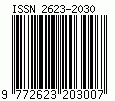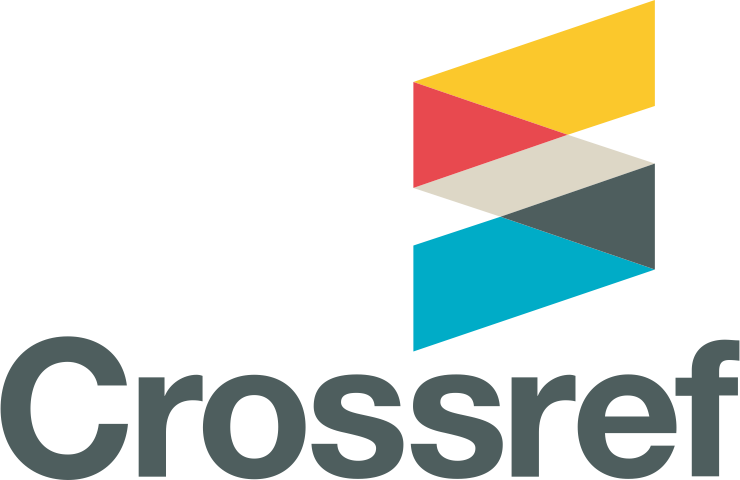DESIGN OF PROTOTYPE OF LEARNING INFORMATION SYSTEM OF WEB-BASED MODERN SHIP NAVIGATION TOOLS
DOI:
https://doi.org/10.33556/jstm.v24i1.369Abstract
This paper aims to provide an overview of the process of learning navigational tools on board
by making a prototype design of a website-based learning information system for learning
modern ship navigation tools. This type of research is descriptive qualitative. Data collection
techniques in this writing using observation, interviews, literature studies, and documentation.
Interviews were conducted in-depth and structured with the captains of the ships who are also
professional lecturers in the Maritime Higher Education Nautics study program. The results
include the design of a prototype menu consisting of a sub-menu on principles and navigation
devices as well as a sub-menu on the advantages and disadvantages of each navigation device,
both modern and conventional navigation devices. The prototype can be implemented on the
subject and consists of various navigation devices, functions and uses of modern navigation
devices; principles and mechanisms of modern navigation devices; and the strengths and
weaknesses of modern navigation tools. The conclusion is that designing a prototype learning
information system for modern web-based navigation devices for determining ship locations has
a communicative design. The design of the Information System prototype for learning Modern
Navigation tools is capable of creating an information system for learning website-based
modern navigation tools
References
Antao, P., & Soares, C. G. (2008). Causal factors in accidents of high-speed craft and
e-ISSN : 2623-2030
conventional ocean-going vessels. Reliability Engineering & System Safety, 93(9),
–1304. https://doi.org/10.1016/j.ress.2007.07.010
Bergstrom-Lynch, Y. (2019). LibGuides by Design: Using Instructional Design Principles and
User-Centered Studies to Develop Best Practices. Public Services Quarterly, 15(3),
–223. https://doi.org/10.1080/15228959.2019.1632245
Hariadi, B. (2009). Sistem Informasi Pembelajaran Berbasis Web dengan Metode Cooperative
Learning. http://repository.dinamika.ac.id/id/eprint/335
Hoffman, D. (1980). The integration of shipboard and shore-based systems for operations in
heavy weather. Computers in Industry, 1(4), 251–262. https://doi.org/10.1016/01663615(80)90022-6
Leonard, J. J., & Bahr, A. (2016). Autonomous underwater vehicle navigation. Springer
Handbook of Ocean Engineering, 341–358.
Lindemann, J. P. (2005). Visual navigation of a virtual blowfly.
https://core.ac.uk/download/pdf/15958353.pdf
Penchansky, R., & Thomas, J. W. (1981). The concept of access: Definition and relationship to
consumer satisfaction. Medical Care, 127–140.
Safi’i, I. (2017). Perancangan Sistem Informasi Jurnal Perkuliahan Sebagai Upaya Monitoring
dan Evaluasi Proses Pembelajaran (Studi Kasus: Prodi Teknik Industri Fakultas Teknik
Universitas Kadiri). JATI UNIK: Jurnal Ilmiah Teknik Dan Manajemen Industri, 1(1),
https://doi.org/10.30737/jatiunik.v1i1.64
Soares, C. G., & Teixeira, A. (2001). Risk assessment in maritime transportation. Reliability Engineering & System Safety, 74(3), 299–309. https://doi.org/10.1016/S09518320(01)00104-1
Downloads
Published
Issue
Section
License
Authors who publish with this journal agree to the following terms:Authors retain copyright and grant the journal right of first publication with the work simultaneously licensed under a Creative Commons Attribution License that allows others to share the work with an acknowledgement of the work's authorship and initial publication in this journal.
Authors are able to enter into separate, additional contractual arrangements for the non-exclusive distribution of the journal's published version of the work (e.g., post it to an institutional repository or publish it in a book), with an acknowledgement of its initial publication in this journal.
Authors are permitted and encouraged to post their work online (e.g., in institutional repositories or on their website) prior to and during the submission process, as it can lead to productive exchanges, as well as earlier and greater citation of published work (See The Effect of Open Access).







